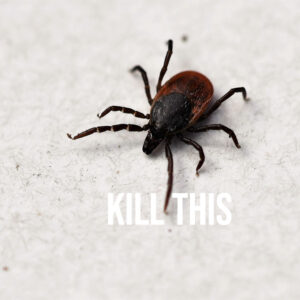Flea and Tick Medications; Project Jake Finding

Frontline Plus is the ONLY tick and flea preventative used on Kingsdale dogs!
We try to keep abreast with all the health research being done on dogs and more specifically, with Scottish Terriers. Dr. Jean Dodds is an expert whose work we follow closely. This information is provided by Dr. Dodds, and her company, Hemopet, with her permission to use it on this site. It appears on her web site here.
On September 20, 2018, the United States Food and Drug Administration (FDA) issued a warning that the following flea and tick medications have caused adverse events in dogs and cats such as muscle tremors, ataxia and seizures:
Bravecto (fluralaner) tablets for dogs;
Bravecto (fluralaner) topical solution for cats and dogs;
Nexgard (afoxalaner) tablets for dogs; and,
Simparica (sarolaner) and Simparica Trio (sarolaner/moxidectin/pyrantel) tablets for dogs.
All of these medications are in the isoxazoline class of compounds. Isoxazoline is a parasiticide.
The FDA worked with manufacturers of isoxazoline products to include new label information to highlight neurologic events because these events were seen consistently across the isoxazoline class of products.
Two additional drugs that are also in the isoxazoline class had recently received FDA approval and carry the warning on their labels:
Credelio (lotilaner) tablets for dogs; and,
Revolution Plus (selamectin and sarolaner topical solution) for dogs and cats.
Isoxazoline class flea and tick medications should not be confused with spinosads – a natural substance made by a soil bacterium that can be toxic to insects – that is also for treatment or prevention of fleas. Two of the most well-known spinosad products are Trifexis® and Comfortis®. Dogs that are epileptic or prone to seizures should not be given spinosad.
Comparatively, researchers and veterinarians thus far cannot point to breed characteristics, age group, drug interactions or genetic mutations as contributing factors to the findings that prompted the FDA warning about the isoxazoline class.
Coinciding with the warning, Project Jake had just wrapped up its online questionnaire about flea and tick medications to 2,751 respondents on August 21, 2018, and released its findings on June 2, 2020.
So why release the results if the FDA already issued the warning?
The Project Jake Survey was more broadly based and included:
- pet caregivers who did not give their pets any flea or tick medications;
- pet caregivers who did not see any adverse reactions as well as those that did report them, providing a more inclusive review of isoxazoline use;
- observations by pet caregivers pre‐ (3 months) and post‐drug use;
- questions when adverse event occurred after use of the drug;
- questioned about number of doses of drug(s) given before an adverse event;
- other concurrent health issues and treatments given were requested;
- multiple adverse events were listed for each report; and,
- recovery information and/or follow‐ups were included.
Remember, this survey also concluded before the FDA warning was released, so it represented an objective review as there was ongoing discussion and research being conducted prior to the release.
Additionally, the FDA reporting system depends on the voluntary reporting of adverse clinical events by veterinarians and animal caregiver/owners, as well as the mandatory reporting of adverse events by manufacturers. This FDA information is valuable, even if some of the FDA reports could be duplicates.
Out of the 2,751 Project Jake Survey respondents:
Gave their dog any flea treatment: 1,594 (57.9%)
Gave their dog an isoxazoline treatment: 1,325 (48.2%)
Did the dog experience a reaction to any treatment?
Yes 1,062 (66.6%)
No 576 (36.1%)
Unsure 130 (8.2%)
To find out the rest of the results and comparative data with the FDA’s database, you can read Project Jake’s peer-reviewed and open-access paper, “Survey of canine use and safety of isoxazoline parasiticides”.
About Project Jake: The survey group included Valerie Palmieri, W. Jean Dodds, Judy Morgan, Elizabeth Carney, Herbert A. Fritsche, Jaclyn Jeffrey, Rowan Bullock, and Jon P. Kimball.



